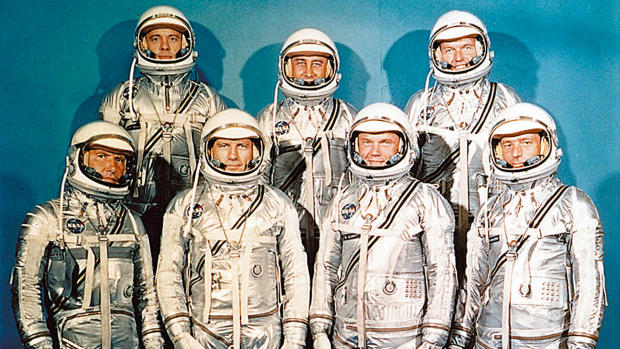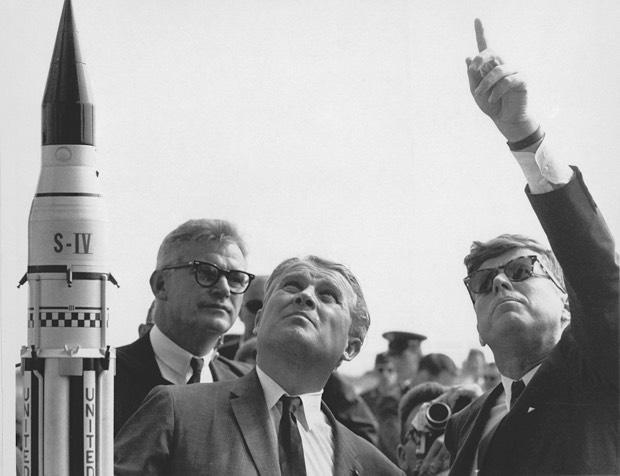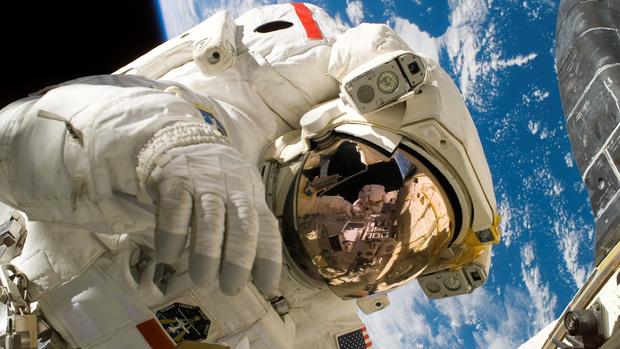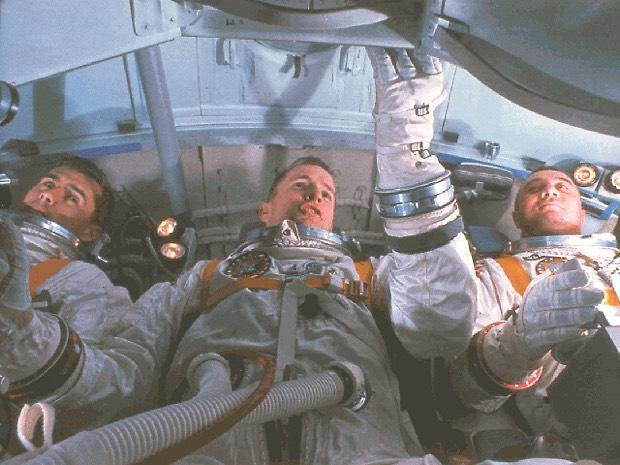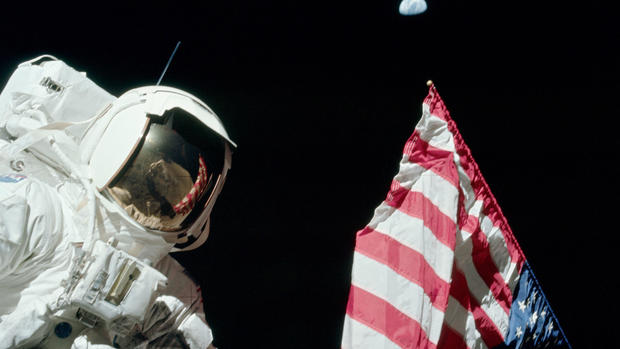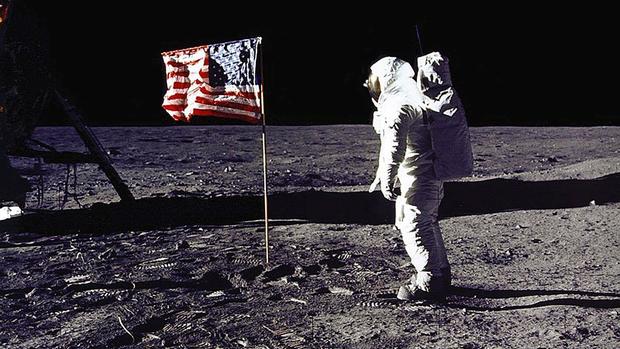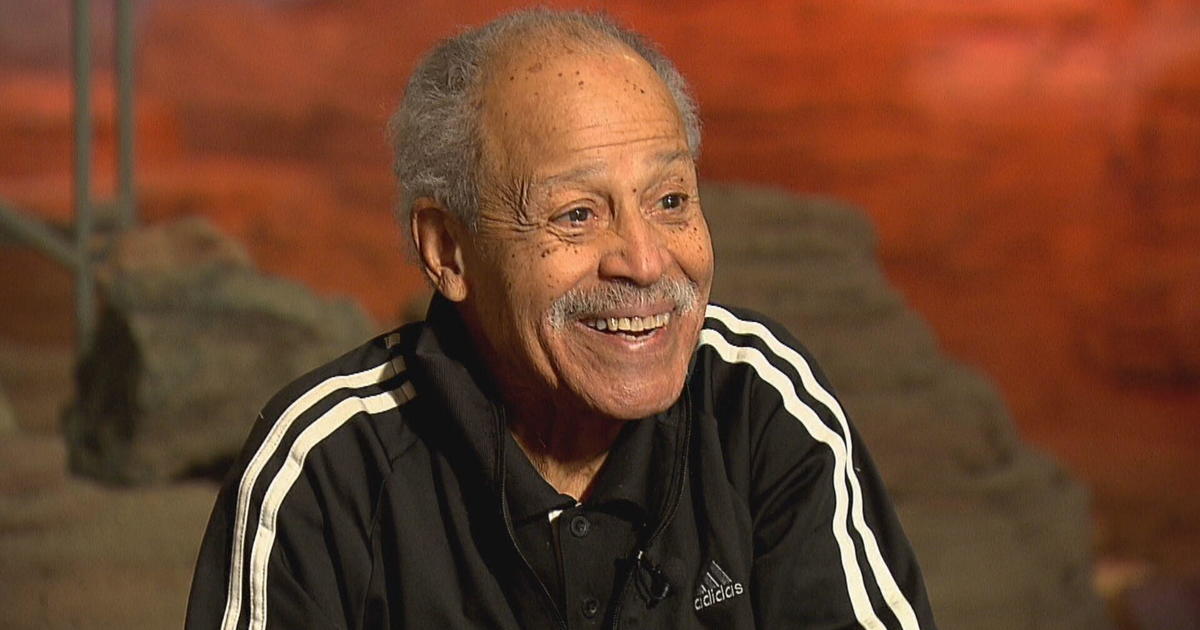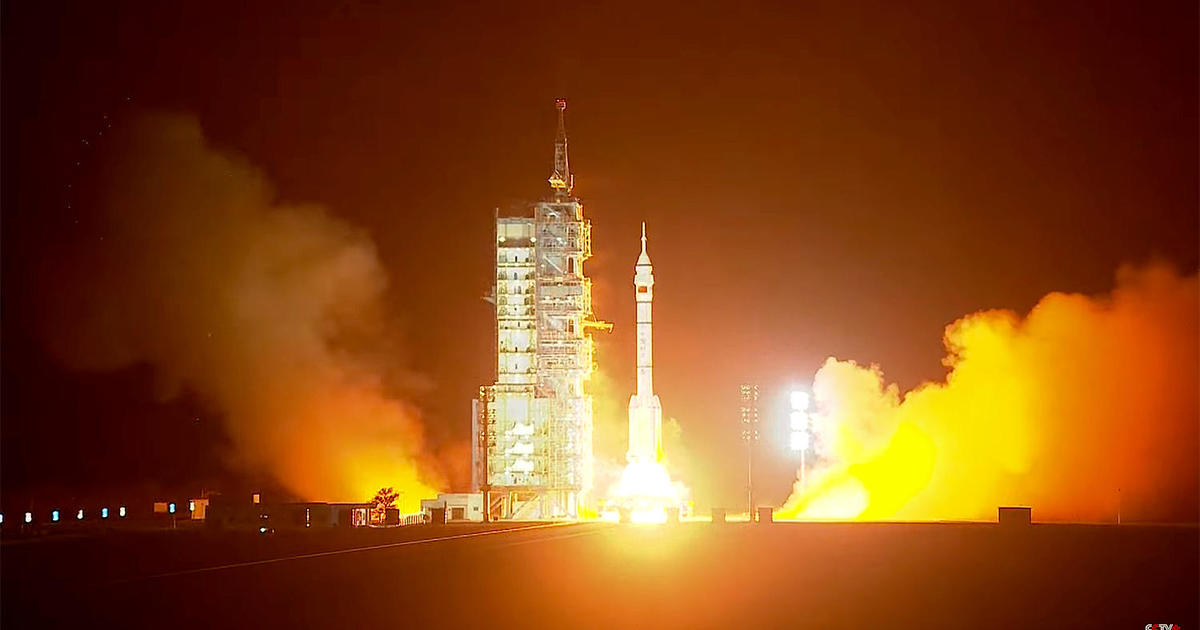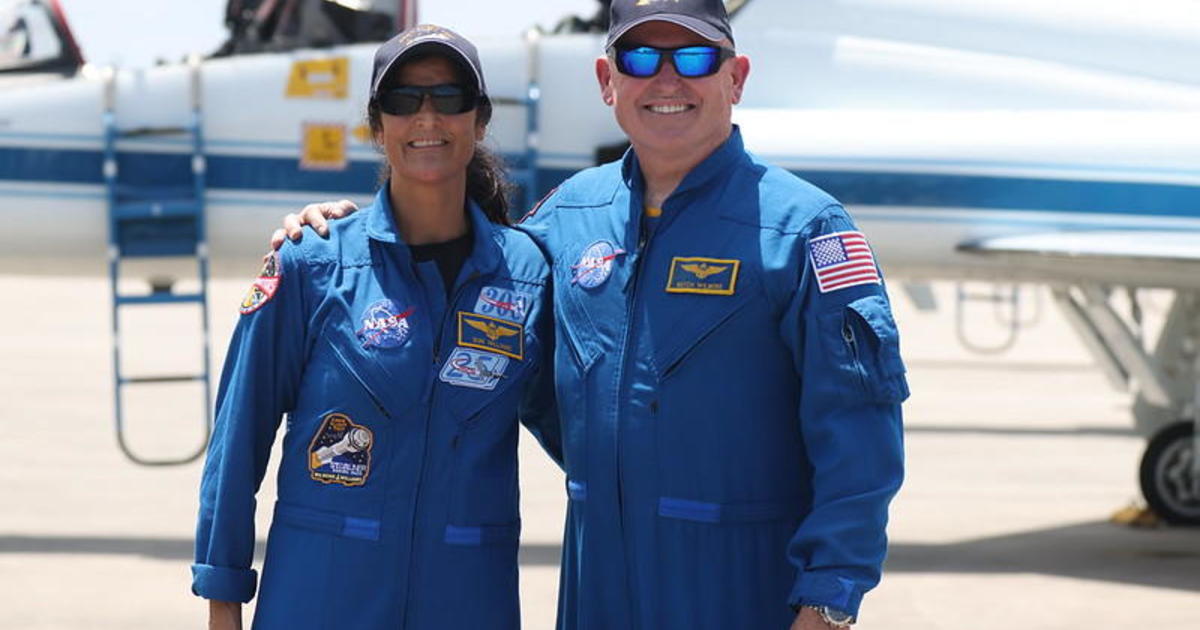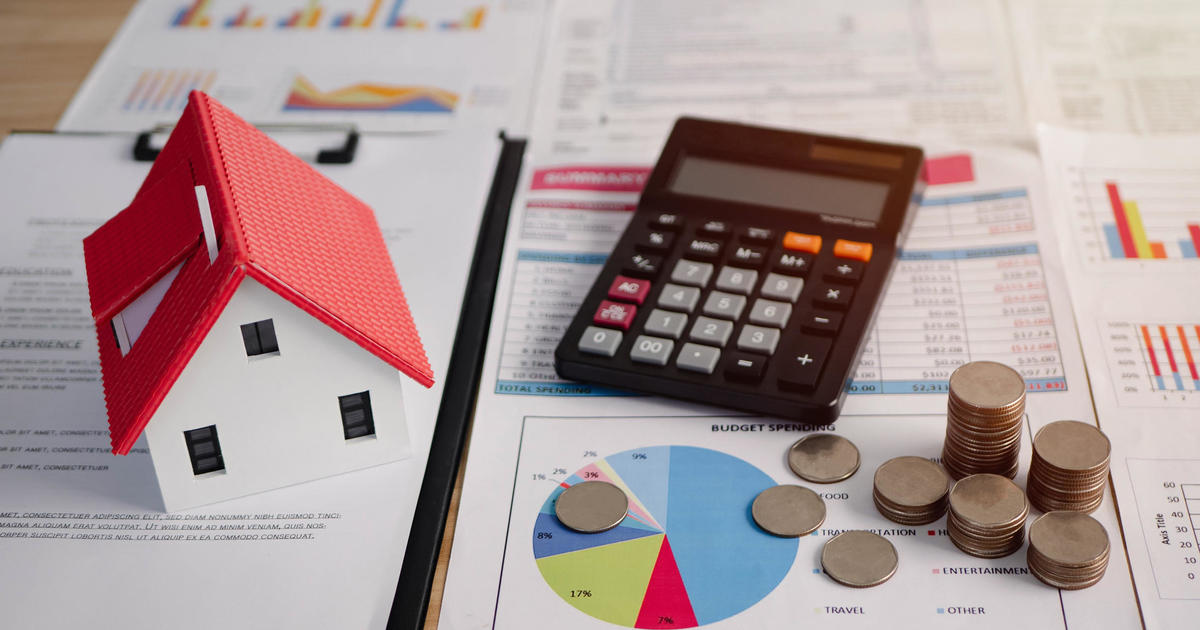The path to Apollo 11: A timeline of the space race to land on the moon
The Cold War space race began with the Soviet Union's launch of Sputnik, the first artificial satellite. The United States responded with the launch of Explorer 1, which discovered the Van Allen radiation belts, and ultimately developed the rockets and spacecraft needed to carry astronauts to the surface of the moon and bring them safely back home.
It was one of the most remarkable periods in United States history, especially given the moon program's extraordinary cost and technical difficulty. Here are the major events on the road to the Apollo 11 moon landing — along with some significant moments in history along the way.
1957:
- Oct. 4: The Soviet Union launches Sputnik, the first artificial satellite.
1958:
- Jan. 31: Explorer 1, the first U.S. satellite, is launched; discovers Van Allen radiation belts.
- July 29: The National Aeronautics and Space Act is signed, creating the civilian space agency.
- Oct. 7: NASA starts the Mercury program, leading to development of one-man space capsules designed to prove humans can live and work in space.
1959:
- Jan. 3: Alaska becomes the 49th state.
- Jan. 4: The Soviet Union's Luna 1 becomes the first spacecraft to reach the moon's vicinity.
- Feb. 16: Fidel Castro becomes prime minister of Cuba.
- April 9: Seven astronauts are selected for the Mercury program: Alan Shepard, Virgil "Gus" Grissom, John Glenn, Scott Carpenter, Wally Schirra, Gordon Cooper and Donald "Deke" Slayton.
- December: NASA begins development of Saturn rockets.
1960:
- July: Apollo is selected as the name for NASA's advanced manned space flight program.
- Nov. 8: John F. Kennedy elected president of the United States.
1961:
- April 12: Cosmonaut Yuri Gagarin becomes first man in space.
- April 17: Bay of Pigs invasion.
- May 5: Alan Shepard becomes the first American in space.
- May 25: President John F. Kennedy proposes landing astronauts on the moon before the end of the decade: "I believe that this nation should commit itself to achieving the goal, before this decade is out, of landing a man on the moon and returning him safely to Earth."
1962:
- Feb. 20: John Glenn becomes the first American to orbit the Earth.
- July: In a crucial milestone, NASA officials approve lunar orbit rendezvous as the technique that will be used for manned moon flights. Under this scheme, two spacecraft will be launched to the moon. Once in lunar orbit, one will descend to the surface and later rejoin the other for the trip back to Earth. This concept evolves into the three-man Apollo capsule and lunar landing module.
- Sept. 12: JFK speech at Rice University: "We choose to go to the moon in this decade and do the other things, not because they are easy, but because they are hard."
- Oct. 16-28: Cuban missile crisis.
1963:
- Aug. 28: Martin Luther King gives "I have a dream" speech at the Lincoln Memorial in Washington.
- September: JFK urges space cooperation with Soviet Union. Premier Nikita Khrushchev does not respond.
- Nov. 16: JFK visits Cape Canaveral for the final time and comes away with renewed enthusiasm for the Apollo program.
- Nov. 22: JFK assassinated in Dallas. Lyndon Johnson sworn in as president.
1964:
- May: A Saturn 1 rocket blasts off on first flight of "dummy" Apollo spacecraft.
- July 2: Civil Rights Act signed by President Johnson.
- Nov. 28: Mariner 4 launched; first spacecraft to image Mars.
1965:
- March 7-25: Civil rights marches in Selma, Alabama.
- March 18: Cosmonaut Alexei Leonov carries out the first spacewalk.
- March 23: Virgil "Gus" Grissom and John Young take off in the first flight of a two-man Gemini capsule. The Gemini program was developed to perfect orbital rendezvous and spacewalk techniques needed by the Apollo program.
- Aug. 6: Voting Rights Act signed by President Johnson.
1966:
- Feb. 26: First launch of the Saturn 1-B rocket carrying an unmanned Apollo spacecraft.
- March 16: Astronauts Neil Armstrong and David Scott are launched aboard Gemini 8; the flight is aborted early because of a thruster malfunction.
- July 18: Astronaut Michael Collins blasts off aboard Gemini 10; Collins completes two spacewalks.
- Sept. 8: "Star Trek" debuts.
- Nov. 11: Astronaut Buzz Aldrin takes off with James Lovell aboard Gemini 12 and carries out three spacewalks.
1967:
- Jan. 15: First Super Bowl.
- Jan. 27: Apollo 1 launch pad fire kills astronauts Virgil "Gus" Grissom, Edward White and Roger Chaffee.
- Feb. 10: 25th Amendment adopted, outlining rules for presidential succession.
- Nov. 9: The first flight of a Saturn 5 rocket is successful.
1968:
- April 2: "2001: A Space Odyssey" premiers in Washington DC
- April 4: Martin Luther King assassinated in Memphis.
- April 11: Civil Rights Act of 1968 enacted.
- Oct. 11: Astronauts Wally Schirra, Walter Cunningham and Donn Eisele are launched on the first manned test flight of the Apollo spacecraft, Apollo 7.
- Nov. 5: Richard Nixon elected president.
- Dec. 21: Astronauts Frank Borman, James Lovell and William Anders orbit the moon during the Apollo 8 mission, the first manned flight of a Saturn 5 rocket and only the second mission in the Apollo program.
1969:
- March 3: Astronauts James McDivitt, Russell Schweickart and David Scott test the lunar module in Earth orbit during the Apollo 9 mission.
- May 18: Astronauts Thomas Stafford, Eugene Cernan and John Young test the lunar module in orbit around the moon during the Apollo 10 mission.
- July 16: Astronauts Neil Armstrong and Buzz Aldrin become the first humans to walk on another planet during the Apollo 11 mission. Crewmate Michael Collins remains behind in lunar orbit aboard the Apollo 11 command module.
- Aug. 15-18: Woodstock music festival.
- Oct. 29: First electronic message exchange with ARPANET, the foundation of the internet.
- Nov. 14: Astronauts Pete Conrad, Alan Bean and Richard Gordon blast off aboard Apollo 12, kicking off the second piloted lunar landing mission.
1970:
- April 10: Paul McCartney announces the breakup of the Beatles.
- April 11: The Apollo 13 mission takes off. Three days later, the planned moon landing is aborted after an oxygen tank explodes. Astronauts James Lovell, Frederick Haise and John Swigert loop around the moon before successfully returning to Earth.
- April 22: First Earth Day celebration.
- May 4: Four students are killed at Kent State University during protests of the Vietnam War.
1971:
- Jan. 31: Apollo flights resume with launch of Apollo 14. Astronauts Alan Shepard and Edgar Mitchell land on the moon, leaving crewmate Stuart Roosa behind in lunar orbit.
- June 30: The 26th Amendment, lowering the voting age from 21 to 18, is approved by the states.
- July 26: Apollo 15 astronauts David Scott, James Irwin and command module pilot Alfred Worden blast off on the fourth lunar-landing mission. This flight includes the first use of a lunar rover.
1972:
- Feb. 21: President Nixon flies to mainland China, beginning a process to normalize relations.
- April 16: Apollo 16 astronauts John Young, Charles Duke and command module pilot Ken Mattingly take off on the fifth moon-landing mission.
- June 17: Burglars break into the Democratic National Committee headquarters at the Watergate office complex in Washington.
- Nov. 7: Nixon is re-elected president after defeating George McGovern in a landslide.
- Dec. 7: Apollo 17 commander Eugene Cernan, Ronald Evens and scientist-astronaut Harrison Schmitt take off on the final Apollo mission.
1973:
- Jan. 22: The Supreme Court hands down the Roe vs. Wade decision, legalizing abortion in the first six months of pregnancy.
- May 14: A Saturn 5 rocket carries the giant Skylab space station into orbit.
- May 25: Astronauts Charles Conrad, Joseph Kerwin and Paul Weitz begin a 28-day stay aboard Skylab.
- July 28: Astronauts Alan Bean, Owen Garriott and Jack Lousma begin a 59-day stay aboard Skylab.
- Nov. 16: Astronauts Gerald Carr, Edward Gibson and William Pogue kick off a record-setting 84 days in orbit in the final Skylab flight.
1974:
- Aug. 9: Nixon resigns as president in the wake of the Watergate scandal. Gerald Ford is sworn in.
1975:
- July 15: Astronauts Vance Brand, Donald "Deke" Slayton and Thomas Stafford blast off aboard a Saturn 1-B rocket in the final Apollo mission. Two days later they link up with Soviet cosmonauts Alexei Leonov and Valery Kubasov in the Apollo-Soyuz Test Project. This is the final American human spaceflight until the space shuttle's maiden flight in 1981.
